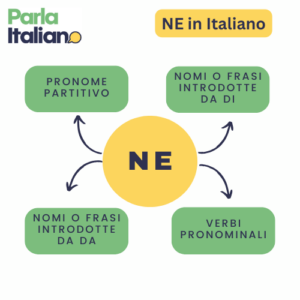This is a blog in Italian for students (from A2)
San Valentino si avvicina. Questa ricorrenza vuole che gli innamorati si scambino fiori e cioccolatini, ma in Italia c’è una tradizione particolare legata ai lucchetti. Questa tradizione nata in Italia si è poi diffusa per il mondo e ora troviamo lucchetti chiusi su molti ponti internazionali, dalla Cina all’Inghilterra.
Vi è mai successo di vedere, in alcune grandi città, sui ponti, una serie di lucchetti chiusi, alcuni con nomi e altre con iscrizioni d’amore? Vi siete mai chiesti che significato hanno?
In cosa consiste la tradizione
Questa tradizione ha un significato romantico, le coppie chiudono un lucchetto su un cavo o altro supporto, nei pressi di un ponte, gettando poi la chiave nel fiume rendendola così irreperibile. Con questo gesto la coppia afferma che non potrà più separarsi e che il loro amore durerà per sempre.
Dove nasce la tradizione dei lucchetti dell’amore
Questa tradizione nasce a Firenze una cinquantina di anni fa, in una scuola militare di Firenze. Gli allievi ufficiali al termine della loro permanenza nella scuola, al congedo erano soliti chiudere il lucchetto dei loro armadietti sul ponte Vecchio. Per loro questa abitudine era simbolo dell’amore che li legava alla città che li aveva ospitati durante questi importanti anni.

Perché questa tradizione è conosciuta così tanto nel mondo?
La tradizione è poi stata reinterpretata da uno scrittore di libri romantici chiamato Federico Moccia.
In uno dei suoi libri “Ho voglia di te”, i due protagonisti usano un lucchetto in questo modo romantico nei pressi del ponte Milvio. Dal libro è stato tratto un film che ha avuto molto successo e che ha contribuito a rendere questa tradizione così popolare. Dopo il film anche i libri hanno raggiunto la popolarità e sono stati pubblicati in molte lingue. Così questo rito del lucchetto nato a Firenze, ha prima conquistato Roma e poi il mondo.
Qual è la cosa più strana che hai mai fatto a San Valentino? E quella più dolce? Fatemi sapere!
Vocabulary: learn faster with this technique
Let’s now work on a new technique for learning vocabulary faster.
Believe it or not, if you do some work instead of looking up words that you don’t know straightaway, it is actually more beneficial for developing vocabulary and for their retention in your long-term memory.
The following approach facilitates active engagement with the text and helps reinforce vocabulary learning. It’s a structured and effective way for vocabulary acquisition and comprehension.
Here is our quick technique:
- Re-read the blog and focus on the words in bold. Do you know their meaning? If not, don’t look them up yet.
- Concentrate on the sentences that the word appears in, can you guess the meaning from the context?
- Does this word look similar to a work in English or another language that you speak?
- Make a note of what you think the word means.
- Now look at the list below and check. How many did you get?
Vocabulary
- Ricorrenza (noun): Occasion, celebration.
- Lucchetti (noun): Padlocks.
- Irreperibile (adjective): Unrecoverable.
- Permanenza (noun): Stay, residence.
- Congedo (noun): Leave, dismissal.
- Reinterpretata (adjective): Reinterpreted.
- Protagonisti (noun): Protagonists.
- Contribuito (verb): Contributed.
- Raggiunto (verb): Reached.
- Popolarità (noun): Popularity







